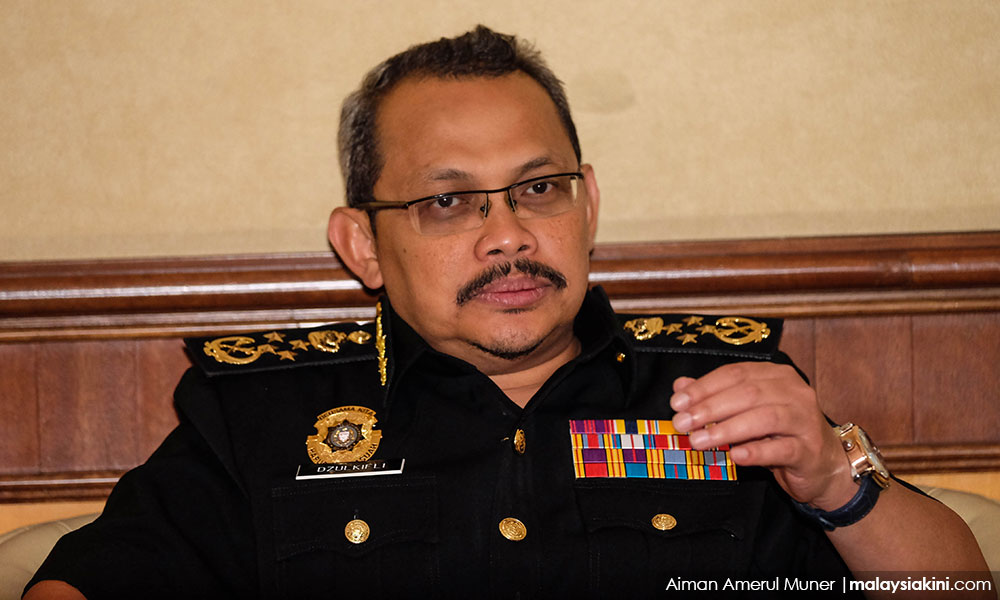
We all share this uncomfortable reality. Affairs are commonplace; we all know a story of adultery. There seems to be a certain kind of inevitability to it.
Belgian psychotherapist Esther Perel has shown through her research that humans might not be monogamous in nature. The marriage institution of a man and a woman is something we created socially, not necessarily based on biological, emotional and psychological truths.
Although we abhor adultery, it is one of the oldest legal, moral and religious offences that has been sustained till today.
If the law is a reflection of our preferences, then it means that we still want to be loyal, we still want to congratulate spouses of integrity, we still want to make marriages last.
Therefore, it would be premature to place any moral judgments on a person like MACC chief Dzulkifli Ahmad, who is alleged to have had an affair with a woman in Bali, Indonesia.
Should the allegations be true, our understanding does not stretch to how his marriage is like and what kinds of struggles his family is experiencing.

However, choosing not to morally condemn Dzulkifli (photo) as a person does not mean we are morally condoning his alleged affair.
The complexity of love and desire in a marriage and a person’s life is not easily placed on a spectrum of good and bad. So I will always reserve my moral judgment in such situations.
But there are two questions that we can discuss: one, why do powerful men cheat? And two, should a cheating man be allowed to hold public office?
Why do powerful men cheat?
Firstly, it seems that politicians and public officials tend to fall into the hole of infidelity.
While it is surely repugnant political mudslinging to use affairs to blackmail a public official to relinquish power, the very fact that they have indeed cheated in the first place doesn’t provide these persons much of a defence.
From US presidents Thomas Jefferson and Bill Clinton, to our own infamous former MCA president Dr Chua Soi Lek, it seems that infidelity is a virus that affects those in power.
Tom Fiedler, dean of the Boston University College of Communication, said that this is because once power is obtained, there is an exponential increase in the opportunity to cheat.
The logic follows that power attracts more attention, and eventually these powerful men will start to stray from their usual course of integrity. Very few good men can resist it.
In fact, a 2011 study by Joris Lammers of Tilburg University et al, which was published in Psychological Science, found a positive correlation between elevated power and the confidence to attract partners. You don’t have to be good-looking; power will make you look good.
But with power also comes a sense of entitlement. These powerful men believe, subconsciously, that the normal rules no longer apply to them, and they will always get away with it (which they do) without negative consequences. Most deceptively, they think no one will ever find out.
That is why powerful men are more likely to cheat.
Should cheating men hold public office?
Secondly, what do we do with cheating public officials? This is a question that has divided even the ranks of Umno today, albeit more for political rather than moral reasons.
If Dzulkifli Ahmad is found guilty of Section 498 of the Penal Code for enticing a married woman, then he would be removed from office upon receiving his punishments. That is the legal answer.
But what about the moral answer? Do private lives affect public duty?
On the one hand, there is no proven correlation that cheating spouses are worse at their jobs than loyal ones.
There is a separation between sex and public work. Sex is a private and emotional act, and public work is an administrative and bureaucratic endeavour.
It is plausible that morals in the marital bed do not determine your performance in public office. If this is the only consideration, then a person like Dzulkifli, should the allegations be true, does not deserve to be removed from office.
However, in my opinion, the door between sex and public work is not impenetrable. Any distinction is merely academic and theoretical.
Your character will not change when you take office. You have to be a good person before you can be a good public official.
But there is another element public officials are subjected to - public credibility. If public office is about trust, then character is a dominant trait for assessing whether this leader should be trusted.
Moreover, unlike a private person, a public official represents our collective expectations and wider consciousness.
We, as a society, refuse to see infidelity being tolerated because they represent us. We want to believe that a person who has been a disloyal spouse will also be a disloyal leader.
As a public official, you are only powerful because you carry with you the weight of the people. That includes the people’s fundamental aspirations and beliefs.
In Malaysia, spousal loyalty and family stability remain dominant pillars of life. If you no longer represent these, you should no longer be powerful.
JAMES CHAI works at a law firm. His voyage in life is made less lonely with a family of deep love, friends of good humour and teachers of selfless givings. This affirms his conviction in the common goodness of people: the better angels of our nature. He tweets at @JamesJSChai.- Mkini



No comments:
Post a Comment
Note: Only a member of this blog may post a comment.